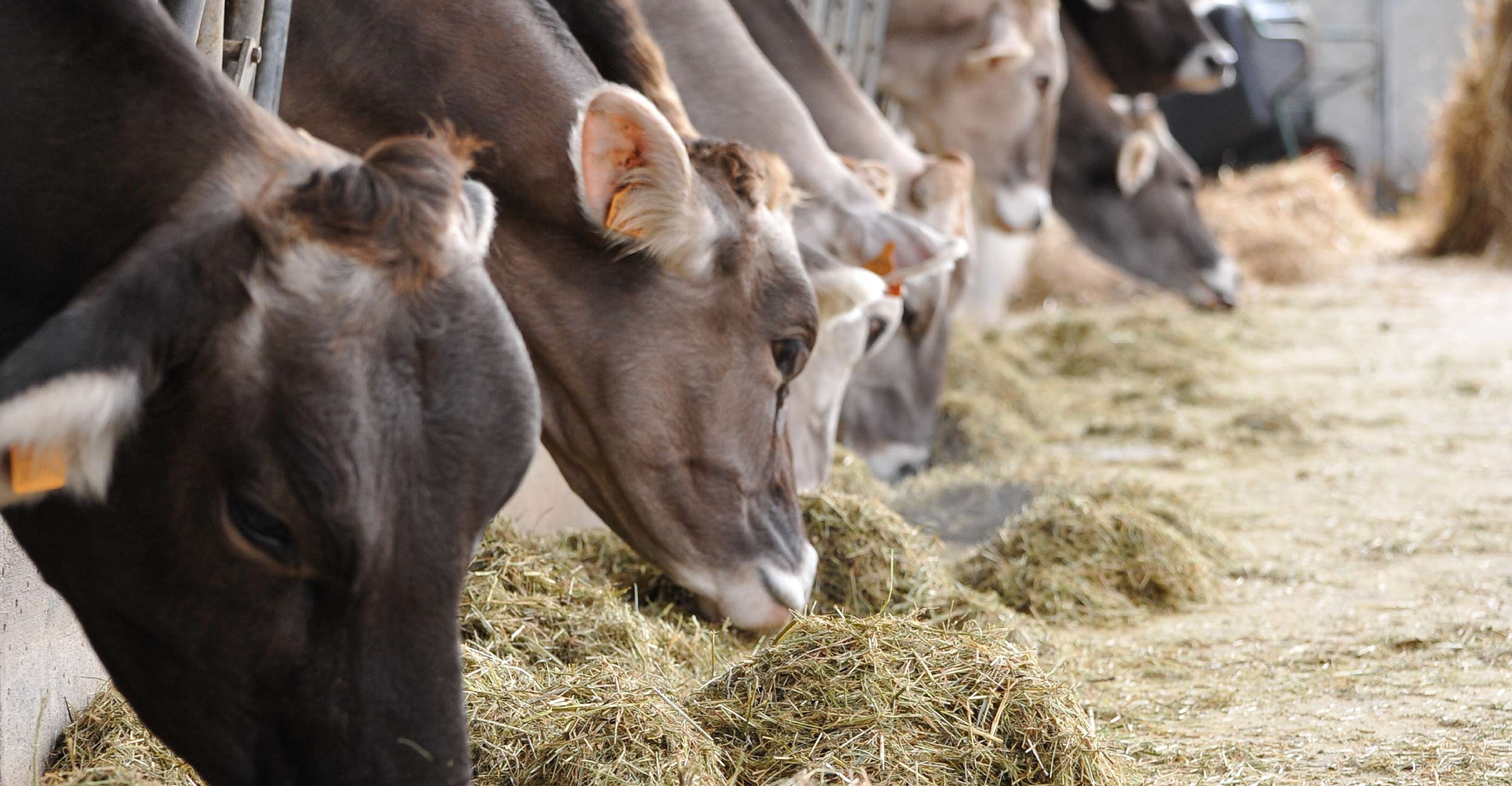In the era of intensive livestock farming, which sometimes takes on a negative connotation in the common imagination, grazing management is a crucial issue.
With this in mind, the practice of "barn grazing," which makes use of dehydrated alfalfa, emerges as an innovative and sustainable solution, meeting the nutritional needs of cattle and replicating the benefits of traditional grazing.
In this article, we will dive into techniques and tips for optimizing the use of alfalfa in the barn, while also referring to key aspects of Parmigiano Reggiano production.
The innovation of "barn grazing"
The "barn grazing" concept is based on integrating dehydrated alfalfa into the daily diet of cattle in the stable, a choice that allows farmers to improve animal nutrition and overcome the limitation of green space. Dehydrated alfalfa is an ingredient that goes well with fodder and hay from the pastures of farms adjacent to the farms, from the Parmigiano Reggiano chain, and beyond.
In fact, this method provides cattle with a constant source of nutrition similar to what they would have by grazing freely in the meadows.
Seasonal supplementation of alfalfa
Cattle feeding must also adapt to seasonal changes to ensure balanced nutrition throughout the year.
In summer, for example, meadows provide an abundance of fresh forage, increasing nutritional options. In winter, even with meadows set aside for grazing, dehydrated alfalfa in the barn becomes a staple of the daily ration diet. But that's not all: even during the summer period, with high temperatures, the animal's need for natural nutrients increases, and, as a result, cows’ benefit from alfalfa intake.
Supplements must be carefully tailored, considering a cow consumes an average of 25 kg of dry matter daily.
Therefore, employing a proper dose of alfalfa, which is rich in protein, is essential to maintain an optimal dietary regimen depending on the time of year.
Nutritional and environmental benefits
The use of alfalfa in the barn not only provides nutritional benefits to cattle but also contributes to the environmental sustainability of livestock farms.
As a perennial plant, alfalfa improves soil structure and its biodiversity, reducing the need for chemical fertilizers and contributing to the health of the agrarian ecosystem.
Choosing the right product for your farm
Choosing the right alfalfa for your farm is another crucial aspect. Agricole Forte offers high-quality dehydrated alfalfa suitable for different types of production. It is essential to select the format that is most congenial to the type of cattle present and the desired production, as well as the one with the most suitable nutritional qualities, taking into account the various formats available and the various life stages of the animal, from pellets to wafers cubes to the more classic bales.
The whole range of Agricole Forte products responds to different needs, moving from a more fibrous forage, called "Maggengo Hay", to a more protein-rich one, called "Premium", from a purity standpoint.
Alfalfa in the stable and milk quality
The introduction of alfalfa into the diet of dairy cattle also positively affects product quality.
The richness of alfalfa's carotenoids imparts a more intense and natural color to milk and provides antioxidants that improve cows' health and resistance to disease. In addition, the essential fatty acid content helps improve the nutritional profile of milk and meat products (and their derivatives), which consumers increasingly value in an age where attention to food quality is rising.
The role of alfalfa in the Parmigiano Reggiano supply chain
In the specific context of Parmigiano Reggiano's production, alfalfa in the stable takes on a central role.
Production specifications require cows to be fed high-quality local forages to maintain a high cheese standard. Alfalfa addition in the stable contributes significantly to achieving this goal, considering that cows receive, on average, at least 2-3 kg of this fodder per day in addition to the unifeed ration.
It should be noted that this practice not only improves the health and well-being of the animals but also positively affects the quality and organoleptic characteristics of the cheese.
Grazing management: animal health and well-being
Proper grazing management cannot, of course, disregard animal well-being broadly understood.
Feeding cattle high-quality alfalfa in the stable helps prevent digestive problems commonly associated with using less fiber-rich forages. In addition, the texture of dehydrated alfalfa stimulates chewing and salivation, which are important aspects of dental health and ruminal digestion. Animal well-being directly translates into increased animal productivity and reduced veterinary costs, critical elements of a herd's profitability.
Seasonal forage management
As mentioned earlier, the constant availability of dehydrated alfalfa allows farmers greater flexibility in managing livestock diets during colder months or periods of drought.
This ability to maintain consistent feed quality regardless of the seasons becomes a significant competitive advantage, ensuring that nutritional standards remain high all year round for consistent, superior quality production.
Is the Future of Grazing in the Stable?
Thus, adopting "barn grazing" is an undoubted step toward more sustainable farming practices.
By reducing dependence on outside grazing, livestock producers can limit overgrazing and contribute to preserving natural resources. In addition, integrating alfalfa in the barn can be a decisive change for all those realities that do not have stable pastures available for grazing, bringing to the barn all the benefits of well-managed seasonal grazing with greater control over costs.
Optimizing pasture management with alfalfa in the stable not only solves the problem of limited access to meadows but also paves the way for agriculture that is close to future issues, capable of respecting the environment and the natural rhythms of animals.
All to everyone's benefit because research shows that a balanced diet improves the health of livestock and the quality of derived products- a win-win for farmers, consumers, and the planet.
You can seek guidance from the experts at Agricole Forte on the best product for your herd to ensure a balanced, high-quality diet for your cattle.
